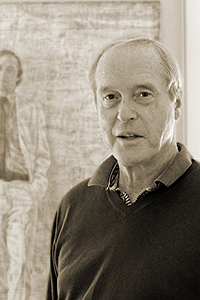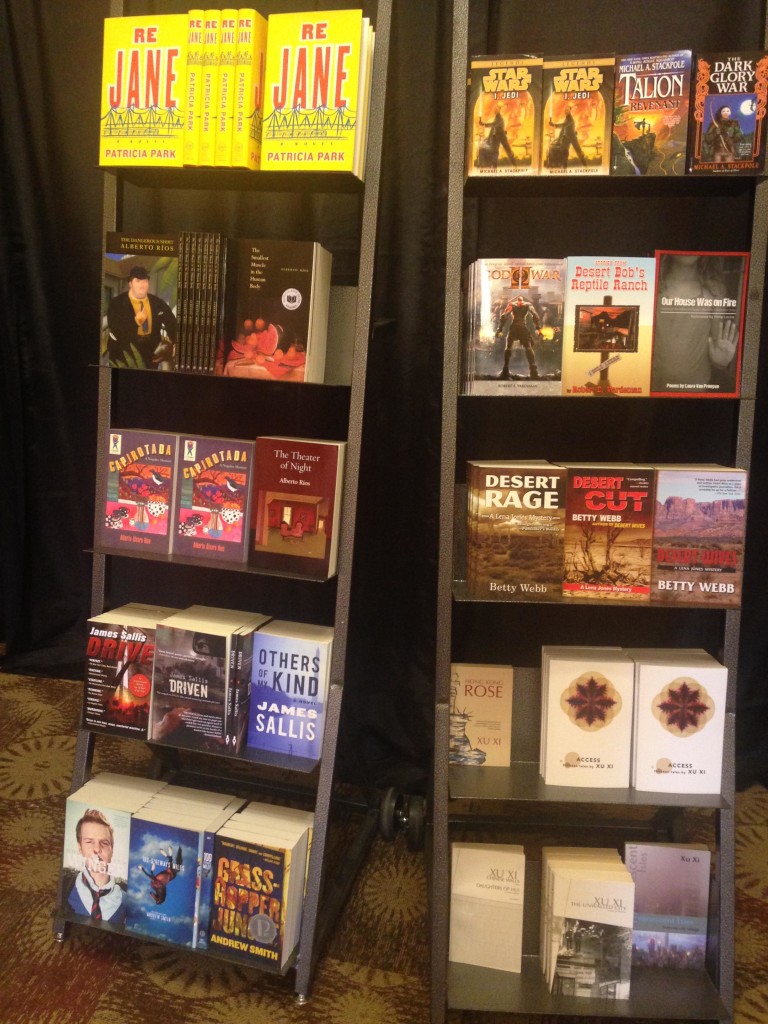 The Nine Strengths: What a Story-Writer Possesses that He or She May Not Realize as Even Greater Strengths in Novel-Writing
The Nine Strengths: What a Story-Writer Possesses that He or She May Not Realize as Even Greater Strengths in Novel-Writing
You got to know that you know what you know.
–Michael Casey
“The Company Proficiency Test Average”
Obscenities
Beginning fiction-writers usually start with the short story–for the obvious reason that at least on the surface of it, shorter seems easier. But most story-writers also aspire eventually to write novels, and the conventional wisdom is that writing short stories is the apprentice work for writing novels. A stupid way that it’s often phrased is that writing short stories is for children, while writing novels is for grown-ups. However, the occasion of trying to write a novel turns out to be so intimidating for even accomplished story-writers that they can forget to use their most highly developed tools and most valuable habits of creative thinking. Something about all those pages, all those characters, and all that narrative time to be covered can make a would-be novelist panic, forget what he knows, and make unfortunate decisions he’d never make in writing a story.
This was the case with yours truly. I’d published five story collections and a novella before I managed to write a publishable novel. And it wasn’t for lack of trying. In the old computers asleep in my attic two complete novel-manuscripts have found their final resting places. The good news is that recently I’ve written a couple of novels, one of them in three months, the other in six months. Like everything else in writing, this productive phase was mostly just a matter of luck, but I also believe that I’ve finally come into possession of things I knew perfectly well forty years ago. I had the knowledge and the tools all along, but the monster that a novel appeared to be when I was trying to write one scared me out of using my strengths. Instead I tried to rely on my weaknesses–big thinking, abstractions, philosophizing, tricky plot moves, high drama, far-fetched characters, etc. What follows, out of my experience, is a brief discussion of some story-writing tools that I now understand to be even more well-suited for novel-writing than they are for story-writing:
1. A veteran story-writer learns when to leave off, i.e. when to tease, to engage the reader’s imagination by way of omission, to motivate the reader to keep going–in the story or in his or her imagination–in spite of frustration. This applies especially to story endings, but it also applies to sections of stories. Or even to sentences in the middle of a paragraph. E.g., the teasing withholding of how Curt Lemon died in Tim O’Brien’s “The Things They Carried” makes a reader understand the deep significance of that death to the members of Lemon’s platoon.
2. A first principle for story-writers–often so much an assumption that the writer him- or herself is no longer conscious of it–is that it is crucial not to be boring. “Leaving out the parts that most people skip” (as Tony Hillerman phrased it) is pretty natural for a short-story writer, but a beginning novelist will often foolishly feel compelled to fill in a lot of blank pages. The novel occasion can persuade one that one must throw everything into the narrative rather than judiciously leaving many things out.
3. A story-writer often discovers both the pleasure and the narrative effectiveness of withholding something of narrative importance–of simply not overtly revealing a basic fact. E.g., the narrative of J.D. Salinger’s “Pretty Mouth and Green My Eyes” refuses to say straight out that the woman in bed with the gray-haired man is the wife of the poor fellow who calls the gray-haired man to ask if he knows where his wife is. Everything in the text points to that being the case, but the absence of a factual assertion infuses the story with ominous possibility and tension. John Irving employs a similar strategy with the death of a beloved child character in The World According to Garp.
4. Because short stories are such a specialized and highly refined literary genre, their practitioners assume that their readers are adults who have little patience for the obvious. Thus, story-writers take pleasure in challenging their readers. People who aren’t serious and skilled readers are not inclined to read contemporary short stories. Those who do read them are literary gourmets. George Saunders, Tobias Wolff, T.C. Boyle, Amy Hempel, and Alice Munro expect their readers to bring background, imagination, a deeply ironic sensibility, and linguistic alertness to the reading occasion. But the high-end readers a story-writer wants are the exactly same readers he wants for the novel he might write if he is lucky.
5. Because the main characters of short stories are almost always “outsiders,” story-writers learn to trust their own strangeness, quirks & kinks, improper thoughts, obsessions, etc. as “the good stuff” of a narrative. This is not traditionally the case with novelists who are most often concerned with mainstream or regular citizens. (In The Lonely Voice, Frank O’Connor argues that “the short story more than any other genre involves a protagonist who is an outsider and operates on the periphery of society.”) Contemporary novels, however, are more and more inclined to “involve” oddball protagonists. Story-writers rely on the oddball protagonist who lives within them, but all too often they think that weirdo can’t possibly help them write a novel.
6. You do not become a short story-writer unless you possess a natural inclination to narrow the scope, to rely on a very small picture to bring authority to a big picture–to use mostly detailed accounts of scenes as the stuff of narrative. In fact I’m certain that the little-picture method of composition is the path story-writers take to discover whatever truth their work has to offer. Story-writers become synecdoche specialists. However, when they attempt the longer form, they can lose faith in this sophisticated and long-cultivated talent. My experience has taught me what now seems obvious–that the impulse to focus minutely is of as much value in making novels as it is in story-making.
7. Story-writers become geniuses of narrative transitions–or the writing of transitionless narratives–stories that use white space to represent time-gaps instead of conventional phrasing like “A week later,” or “In the days that followed.” Dead space, or lifeless language, in novels is just as deadly as it is in stories, but the beginning novelist may not think so. By the way, my all-time favorite transitionless moments in fiction occurs in Flannery O’Connor’s “Parker’s Back:
…Sara Ruth agreed to take a ride in his truck. Parker parked it on a deserted road and suggested to her that they lie down together in the back of it.
“Not until after we’re married,” she said – just like that.
“Oh that ain’t necessary,” Parker said and as he reached for her, she thrust him away with such force that the door of the truck came off and he found himself flat on his back on the ground. He made up his mind then and there to have nothing further to do with her.
They were married in the County Ordinary’s office because Sarah Ruth thought churches were idolatrous.
8. After Hemingway, “show, don’t tell,” became the story-writer’s mantra. Contemporary story-writers (most extravagantly and brilliantly, Harold Brodkey), however, have shown the way toward both showing and telling. The show-don’t-tell template, though, never leaves the story-writers’ thinking, whereas it often doesn’t show up at all in the efforts of a beginning novelist. And story-writers making early attempts at novel-writing–because they don’t believe it applies to making narratives ten or fifteen times longer than a short story–are all too often inclined to switch off that useful little interior mantra that never stops whispering “show, don’t tell.” They explicate too much of what they should dramatize. I advocate both telling and showing, but I think I do a better job of telling because my habit is to err on the side of showing.
9. The dynamic nature of the interior lives of individual human beings is the bread and butter of fiction-writing. The interior life is what fiction brings to art that the other forms either can’t manage at all or else have to try to accomplish in unnatural ways–e.g. voice-over in movies. Both story-writers and novelists understand this perfectly well. What a story-writer brings to the novel-writing occasion is a refined sense of interior-life management. Which is to say that the story-writer is less inclined than the apprentice novelist to indulge a protagonist in pages and pages of soul searching and mental noodling. Naïve novelists can be wildly indulgent when they open up their characters’ thoughts and feelings, whereas story-writers bring speed, agility, and tact to their rendering of their characters’ thoughts and feelings. Novel readers may want more pages, but they also want narratives that intensely engage them from beginning to end. Which is to say that just because they’re reading a novel they’re no more tolerant of literary fooling around than a story reader is. They want what we all want–the dream that is so compelling we don’t want to wake up.






